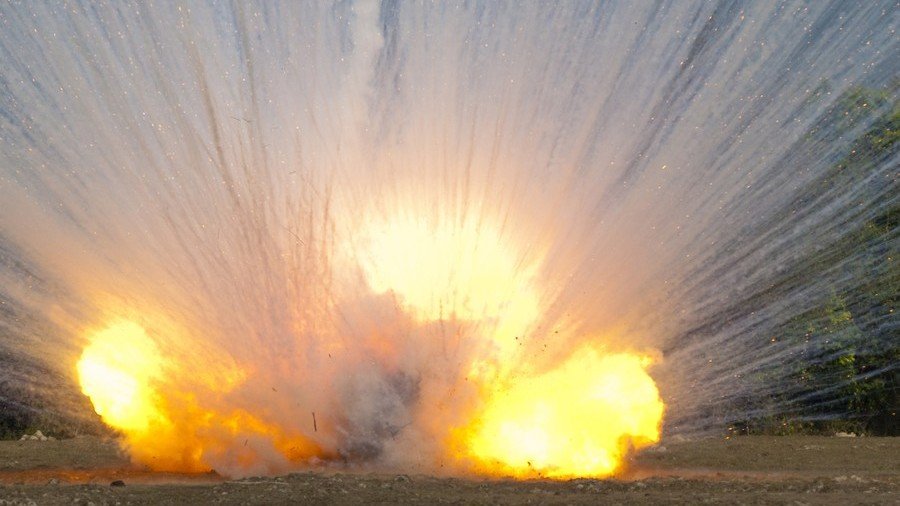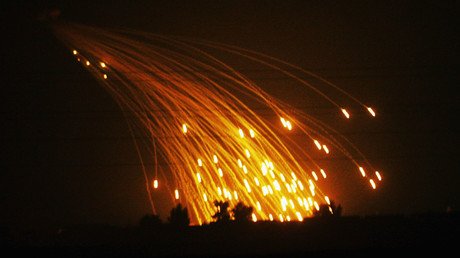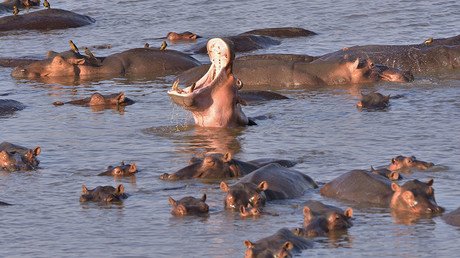US-led coalition bombs Syrian town with banned white phosphorus munitions – state media

The US-led coalition has reportedly targeted a Syrian town in the province of Deir ez-Zor with white phosphorus bombs. The forces have been repeatedly accused of deploying banned munitions, yet it denies its involvement.
The coalition attacked the town of Hajin in the province of Deir ez-Zor with white phosphorus incendiary munitions, which are banned under the Geneva Convention, SANA news agency reported on Monday. No information on casualties or damage was immediately available.
Earlier on Monday, the agency reported another coalition airstrike in the same province, which killed three children in the village of Al-Shafah. It remains unclear, which type of munition was used during that attack.
Over the past few months, the US-led alliance has been repeatedly accused of using white phosphorus munitions in the province of Deir ez-Zor, where it supports the so-called Syrian Democratic Forces (SDF) fighting the remnants of Islamic State (IS, formerly ISIS).
In October, the Syrian Foreign Ministry sent a letter to the UN Security Council, condemning the use of white phosphorus and accusing the US-led coalition of using the so-called “scorched earth” tactics. Moscow also blamed the forces for using the banned bombs in the town of Hajin back in September, stating that the munitions triggered massive fires in the area.
Despite numerous reports of the banned weaponry usage, the coalition has repeatedly denied its involvement.
Use of any incendiary munitions in populated civilian areas was banned by the 1980 Protocol III of the Convention on Certain Conventional Weapons. Washington joined the protocol back in 2009.
The document, however, does not cover other white phosphorus-based munitions, namely flares, smoke screens and signals. Such a loophole allows several nations, including the US, to keep weaponry based on the compound in stock.
White phosphorus ignites on contact with oxygen, producing bright light, high-temperature heat and white smoke. Fumes of the chemical are extremely toxic, while exposure to burning phosphorus causes deep, slow-healing burns.
Think your friends would be interested? Share this story!















